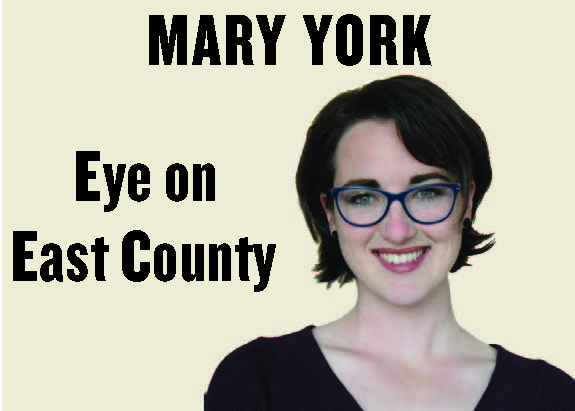I was rolling a number two pencil between the rivets in our tiled kitchen counter when the World Trade Centers went down. I was nine years old.
Still in pajamas, I barely understood what was going on, but I registered the anxiety in my dad’s voice when he burst through the kitchen door, having only just left for work minutes earlier, telling mom to turn the radio on. It was already blaring the devastating news.
I was rolling a number two pencil between the rivets in our tiled kitchen counter when the World Trade Centers went down. I was nine years old.
Still in pajamas, I barely understood what was going on, but I registered the anxiety in my dad’s voice when he burst through the kitchen door, having only just left for work minutes earlier, telling mom to turn the radio on. It was already blaring the devastating news.
As an adult, I look back on that moment and the only way I seem to be able to weigh the magnitude of that earth-shaking moment is through the reactions of my parents. I have honestly never seen either of them so shaken – not before, not since.
Every year, around the second week of September, the country seems to hush. There is this uneasy silence as the nation tries to figure out how to mourn an event that happened nearly two decades ago.
Forgetting it is obviously out of the question, but the emotion evoked in those initial years following 9/11 does not seem to have a place anymore, especially as a generation rises with no memory of the event.
So how do we remember?
It came as quite a shock to me when I first started teaching high school. No one in my freshman class had been born before 2002. The event that shaped my childhood and, indeed, the course of the world, was literally history to them. They read about it in books.
To be fair, I still read about it.
A few years ago, I started digging through old news articles. Maybe it was the journalist in me trying to see that day through new eyes, or maybe I was just curious to know what a 9-year-old could not comprehend.
That day in 2001, my mom was glued to the radio. In the afternoon, she took all of us kids to a neighbor’s house to watch the news updates on TV because we did not have one. Curled up on the neighbor’s couch – a neighbor we almost never talked to – I tried to make sense of it all. After an hour of the same harrowing footage of the towers crumbling to the earth, Mom finally brought us back home.
Mom’s friend lived in New York City and she spent most of the day worrying about her, waiting for a call, praying she made it out alright.
She did finally call, relaying the stories of the traffic over the bridges as people tried to escape, the papers fluttering across the city like snow, debris filling the air.
We re-lived that day a hundred times in the following weeks as stories of both bravery and tragedy found wings on the airwaves. One man, I remember, called his mom to tell her he would not be evacuating the tower – his friend was in a wheelchair and could not get out, so he chose to stay behind as well. That is a humbling kind of heroism.
The internet was not yet the primary source of information, so my brothers spent days turning radio dials across scratchy broadcasts, searching to know more.
We all wanted to know more.
I, for one, wanted to know if this would be the start of another world war. Would Russia attack us next? Maybe China? Would the boys get drafted out of high school and our sugar be put on rations? My childish curiosity had to be sure.
Little did I know that this war would be wholly different from those in my history books. Did any of us know then what we would be getting ourselves into? Did we know how long our boys would be over there? Did we understand how tricky it would be to fight an ideology?
In the months following the attack, the nation came together in a way I sometimes feel is impossible now. Maybe it was all the patriotic country music stations my family listened to, but it really did seem like, for a moment, everyone was willing to put aside their political differences. Unity mattered more in this time of crisis than all the other things that break and divide us.
Only one set of stories was upsetting: increased aggression towards Muslim-Americans.
Now, I will grant you that, out of the sheer logic of odds and ratios, there were probably a few who did not grieve the attacks on the World Trade Centers. But from the reports, it did not sound like it was violently anti-American jihadist families who were being target – they were average citizens, like you and I. But they were Muslim or Middle Eastern.
Even as a 9-year-old, I knew that sounded wrong. It did not sit well with me at all. And my parents were quick to confirm my suspicions that such actions of prejudice and violence were distinctly un-American. Americans handle internal conflict peacefully – that is the beauty of democracy.
In high school, my dad started taking my brothers and I to an in-house group that met monthly to talk about politics and social issues. We needed to join the discourse, to share ideas and discuss solutions. Many in the group were libertarians. There were some moderate liberals as well. Most of us were staunchly conservative.
How many exciting people I met at those meetings! One man who came occasionally as a guest moderator was in Warsaw during the Cold War. He was with members of the Polish underground who managed a radio broadcast every night. One evening, he told us, they decided to see how many people were actually listening to the illegal broadcast, so they asked their listeners to flick their lights on and off.
All over the city, the lights in Warsaw flickered.
But as moving and inspiring as those discussions were, we eventually stopped going. I still cannot be sure if it was because we just got too busy, with my brothers and I all in high school, or it it was because the discussions increasingly revolved around 9/11 conspiracy theories.
My dad is a patient man, but he has no time for conspiracy. We were attacked – he knows it.
Sept. 11 changed everything. It altered trade, affected foreign and domestic policies, changed immigration procedures.
For more than half of my lifetime – short though it is yet – we have been a nation at war.
Seventeen years later, despite time and research and maturity, I still seem to have more questions than answers, about that day and how exactly it affected everything else. How much of what I remember really happened and how much of it was propaganda – for one side or the other? How much truth was there in our justifications to engage in the Middle East? And are we still fighting that same fight or has it changed, too?
Inquiring minds would like to know.
I do not often think about 9/11 – not until the calendar moves us right up on it every year. Once in a while, the picture of the Falling Man taken by Associated Press photographer Richard Drew of a man soaring earthward from the North Tower, will flit across my mind. It is a powerful photo. Devastating.
That man, entering his final seconds of life upside down, falling from such great heights, seems a reflection of our country at times.
We sent our men and women over to fight a war with no clear end and have given them no grand welcome as they come home. And all the while, we have let the homefront fall to pieces.
Instead of engaging our neighbors in thoughtful discussion in person, we embroil ourselves in hateful, self-righteous name-calling on social media platforms. Instead of searching for answers to the ills of our society, we refuse to acknowledge the problems. Instead of moving forward boldly, with confidence in our nation and in each other, we move in fear, scattered and divided.
According to reports, nearly 3,000 lives were lost that day. What a huge hole in the heart of so many American families that brutal morning carved out.
But I do not think the loss of life was our worst casualty.
I think Americans lost their spirit on 9/11. I think, in many ways, we became a more fearful people. And when we are filled with fear, there is less room for empathy, for respect, for patience – all the things a great nation needs to survive.
Now, my nine years of life before that fateful day hardly give me the historical context that many of you have. Many of you have lived far longer than I and you haveseen wars and witnessed the evolution of our country into what it is today. You will doubtless have perspectives that I do not. Maybe you have answers to the questions I have been looking for. Maybe you are still looking too.
It is difficult to truly understand what someone else has gone through, but we can understand what got them through it. And America has been carried through on her principles.
And thus, we return again to the values of this great nation – life, liberty and the pursuit of happiness, extended in equal measure to all mankind, regardless of race or creed, for the mutual benefit of our communities and the perseverance of this glorious nation.
Let us remember Sept. 11 and honor the memory of those who died by living up to the standard of citizenry expected of Americans. Let us be heroes in our own communities for those who cannot help themselves.
Let us join the public discourse with the knowledge that we are blessed to be able to have open debate – there are those in the world still who have to hide their own opinions.
And let us approach each decision we make as participants of this country and its benefits with humility, “with malice toward none and charity toward all.”













